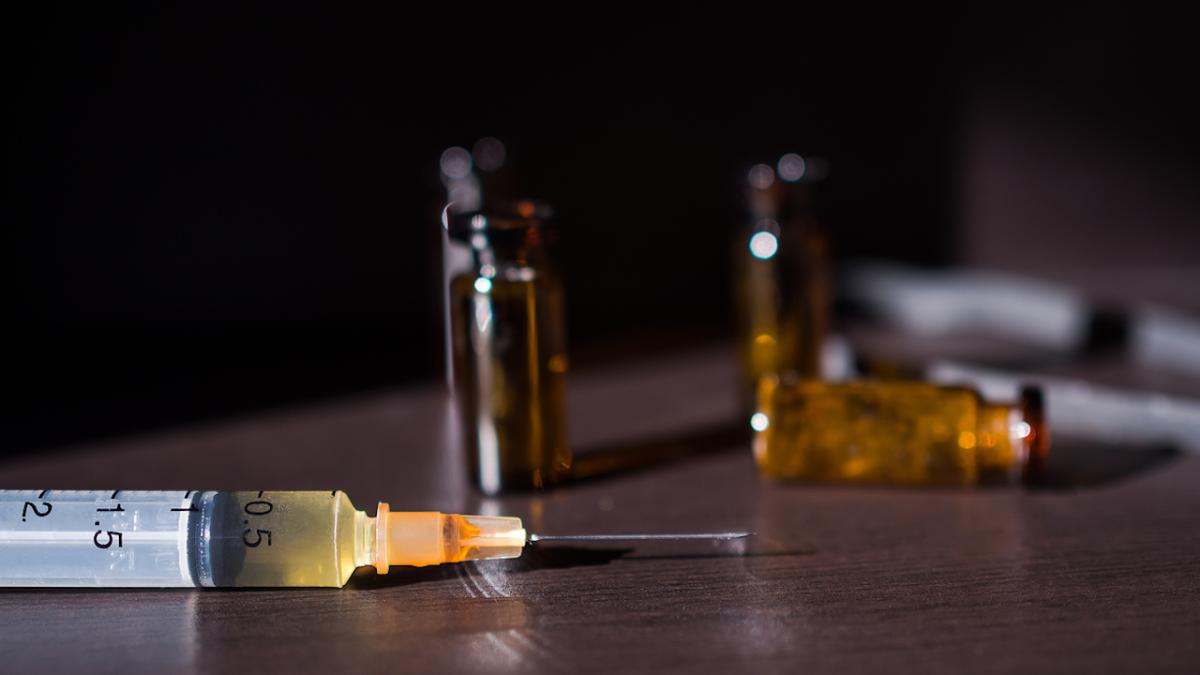
Behind my eyelids, a kaleidoscope danced. My seat threw me around as though I were aboard an unrelenting roller-coaster. Nausea rolled my insides. The distinct stench of an over-sterilised room hung in the air.
It was February 2015, and I was receiving ketamine injections for my major depression. I’d been on prescribed antidepressants for four years after having been diagnosed with depression and anxiety at age 13. My mum had paid for countless psychologists and psychiatrists. She’d dragged me to therapy and asked my teachers for homework when I refused to go to school for months. She’d sat in hospitals and doctor’s clinics watching nurses stitch the skin on my arms back together.
She’d heard an advertisement on commercial radio that a Melbourne clinic was offering ketamine injections to relieve depression. We spoke to my regular GP about it. He’d never heard of either Aura Medical (the company offering the injections for $150 to $200 a pop), nor ketamine’s role in treating mental illness. However, we decided to go ahead with it anyway.
My mum drove me to and from appointments twice a week. I remember her perched in the cubicle, reading her book or typing away at her phone, unaware of the chaos unravelling in my own mind nearby.
Ketamine was discovered in 1956 by the American chemist Calvin L. Stevens. It was approved for use in the United States in 1970, and was used extensively during the Vietnam War as an emergency medicine and anaesthetic. It often induces a powerful hallucinogenic and dissociative effect, which is why it became such a popular recreational drug.
While it’s started to gain traction in research trials around the world as a treatment for mood disorders, in Australia, it’s classed as a Schedule 8 controlled drug and is only approved by the Australian Therapeutic Goods Administration (TGA) for use as an anaesthetic, not a treatment for depression.
So how did Aura Medical advertise and sell patients on a drug that hadn’t been approved? They used a “loophole” in the regulatory framework, the ABC reported in 2015.
I recently learnt that it was investigated by the Australian Health Practitioners Regulation Agency (AHPRA) for giving some patients take-home syringes to administer ketamine at home, with no supervision. Aura Medical shut down just weeks after my final treatment.
I felt like my vulnerability had been taken advantage of to turn over a profit, and I was not alone. But at the same time, I can’t say it wasn’t beneficial to me.
Aside from vivid highs, I don’t remember much from my premeditated K-holes. I sat there, as you do in a dentist’s chair, unbothered and catatonic.That was how I coasted through most days, having mastered the art of hiding how I felt for years. I was numb and my poker-face remained intact.
I began noticing changes around the third or fourth visit. Emotions kicked in, sensations made themselves known and conversations edged toward having more meaning. Something was chipping away at my numbness, but it was like taking a pickaxe to the Great Wall of China. I stopped the injections after my eighth round.
While I don’t think the ketamine alone worked as some miracle drug that cured me instantly, I feel like it aided my recovery. I’d tried so many things that I thought it would just be another failed attempt and I’d never get better. Yet I write this as a person free of medication, free of depressive moods, and free of suicide and self-harm ideations. And it was following the ketamine injections that my depression began to subside.
Ketamine continues to be studied as a treatment for depression, which affects at least 700,000 people globally each year. Recently, a trial by the Black Dog Institute in Sydney found it delivered “astounding” results for people with depression (although noted that the treatment is still prohibitively expensive).
Despite the experience I had, I don’t want anyone to disregard the possibility that ketamine can treat depression when administered ethically. It seems like the jury of medical professionals is still out on exactly what role it could or should play. But if you’re feeling like I was, that there is no longer hope, then it’s definitely worth talking to your doctor about all your options.
Nikki Richardson is a young journo and writer based in Queensland, Australia.
If reading this article was distressing for you, please call Lifeline on 13 11 14. If you would like to seek treatment for anxiety, depression or suicidal thoughts, you can call BeyondBlue on 1300 22 4636 or speak with your GP.



